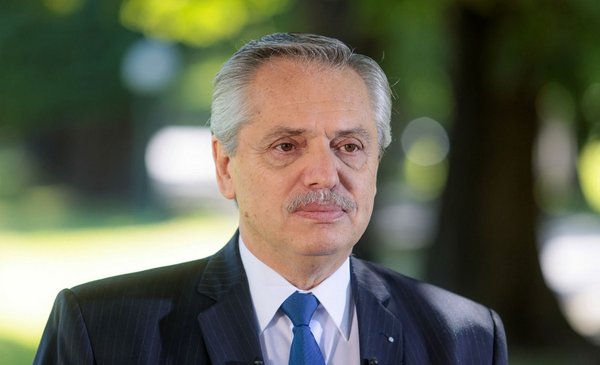Argentina announced on Friday a new credit agreement with the IMF that will allow you to buy time to pay off the debt of more than 40,000 million dollars that it had to repay between 2022 and 2023, although rounds of negotiations are still to come for program details.
“We had an unpayable debt that left us without a present or a future and now we have a reasonable agreement that will allow us to grow and meet our obligations through our growth”, congratulated President Alberto Fernández in a speech.
It’s about a extended facilities agreement for about 44,500 million dollars, which will replace standby taken in 2018 for that same amount.
The difference between one and the other lies in the payment terms, because while the standby concentrated maturities between 2022 and 2024, the new extended facility agreement will extend these terms to the period from 2026 to 2032.
The managing director of the IMF, Kristalina Georgieva, declared herself “encouraged” by the “progress made in key policies for a program that faces the challenges of inflation and more sustainable and inclusive growth“, in a message on his Twitter account.
To enter into force, the agreement must be ratified by Argentina’s Congress and by the IMF’s executive board. In addition, the Minister of Economy, Martín Guzmán, indicated that “we still have to work on the memorandums of understanding and that will take a few weeks.”
Ministry of Economy of Argentina / AFP
The Minister of Economy, Martín Guzmán, also spoke at a press conference about the new agreement
Meanwhile, this Friday Argentina paid the IMF just over 700 million dollars, the first maturity of capital this year, confirmed Guzmán. The following maturities should be financed with the funds of the new program.
“Argentina achieved today with the IMF the same as in 2020 with private creditors: kick the ball forward. The only big difference is that the IMF itself is going to refinance the payments“, economic analyst Sebastián Maril told AFP. “We can celebrate today but our problems will be to be able to meet the goals and See how we pay all the debts we kick“.
Deficit Reduction
Argentina committed to reduce its fiscal deficit to 0.9% of Gross Domestic Product in 2024, with goals of 1.9% in 2023 and 2.5% in 2022, according to Guzmán. Last year, with economic growth of 10%, the deficit was 3%.
Juan Mazzetti, a 27-year-old public accountant, was satisfied that an understanding had been reached, but Doubt about compliance. “Debts have to be paid. This is something that had to be taken out, because very heavy payments were coming these days, so gave a great relief to the country’s finances“, he told AFP in the financial zone of Buenos Aires. However, regarding the reduction of the deficit, he said that “it will not be fulfilled, as has always happened.”
The agreement also provides for a growth in 2022 of 5,000 million dollars in international reserves, which currently amount to just over 38,000 million, according to Guzmán. “The regulations on the financial account will continue,” Guzman said. In Argentina there is a change control since mid-2019.
The markets reacted favorably to the announcements and the parallel exchange rate went from a price of 221 pesos per dollar two days ago to 212 pesos this Friday. The Buenos Aires stock market rose about 3% on the day and Argentine papers on Wall Street gained between 7% and 9%.
According to the IMF, “the agreed fiscal path would gradually and sustainably improve public finances and reduce monetary financing“. The agreement will include a “strategy” to gradually reduce energy subsidies.
There was also an understanding “on the framework for the implementation of monetary policy as part of a multi-pronged approach to face the high and persistent inflation”, of 50% per yearthe Fund said in a statement.
“Tough negotiations”
The Fernández government formally began its talks with the IMF in August 2020. “The negotiations were really very tough,” Minister Guzmán said. “There was a very strong political and technical work“.
The new program will have ten revisions and one duration of two and a half years in terms of economic policies. Maturities will begin four years after the first disbursement and end 10 years later, he said.
In 2018, during the government of the liberal Mauricio Macri (2015-19), the IMF granted Argentina a loan for 57,000 million dollars, of which the country received some 44,000 million since Fernández renounced the pending tranches when he took office in December 2019 In 2020, the Fernández government had restructured some 66,000 million dollars of debt with international private creditors.
AFP
















